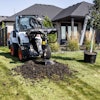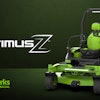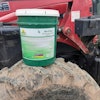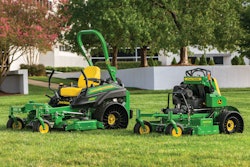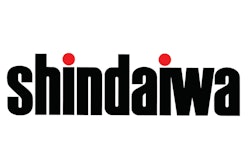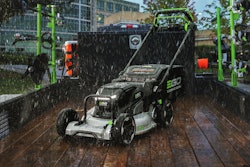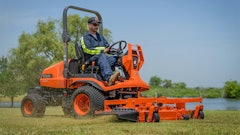In the last 10 years, the number of lawn mower manufacturers has grown significantly. The term "overcapacity" has often been used to describe current conditions; so many colors and choices. Consolidation at the manufacturer level has not necessarily mitigated the overcapacity issue, either. Instead, it's added new challenges. Although each additional product line a dealer carries may not translate into more customers, and not every line that's out there is viable for every dealer, I believe dealers are in the driver's seat more today than perhaps ever before.
The Fight for Share requires Interdependence
Manufacturers and distributors who have developed a solid base of business through a strong dealer network will typically not resort to channel tactics that could jeopardize their customers, such as putting dealers on top of one another. Instead, market share comes as a result of a strong product offering, allowing the manufacturer to garner the very best dealers in a given marketplace, virtually guaranteeing a profitable market for as long as the product/brand commands the attention of the dealer and end-user. That said, manufacturers and distributors are finding it necessary to be more creative than ever to grow or even maintain that share through creative financing, terms, and of course, innovation.
There are manufacturers who cannot command the best dealers, for one reason or another, and do resort to outlets that are not necessarily conducive to long-term growth. This is not to say that the dealers are substandard, but their operation or business model may not be able to support end-users in all their needs. It could be a large store where power equipment is not a focus, a misalignment of the dealer's business model to a targeted customer base (commercially focused dealer targeting consumers or visa versa), or perhaps the facility itself is just not appropriate.
In the end, no one player in the channel is independent. The manufacturer, distributor (in the case of two-step) and dealer are interdependent. Each is obligated to bring a relevance to the table, and that relevance must be viewed as a solution to at least one of the other members in the channel.
Vitality of the Dealer Network
We are delighted to have welcomed a good number of new dealers to the KPM family in recent years. Several are entering the business and industry for the first time, while others are seasoned dealers picking up product lines within KPM's offering.
We have also seen some truly successful generational transfers recently. Business succession is a hot topic in virtually all industries, and outdoor power equipment is definitely not exempt.
Dealer attrition has been a popular topic for several years now around the industry. We are experiencing some of it in our area, but it is primarily a result of voluntary and orderly business changes, as opposed to business failures.
We are extremely proud of our dealer network. They are doing business in one of the most competitive territories in the U.S. The most successful dealers are able to differentiate themselves from the competition (both other independently owned dealers and the big box stores) and do not compete using price as a primary differentiator.
Instead, they consistently deliver a unique bundle of services, and are willing and able to invest the time, money and energy in promoting themselves as their own brand. Competing on price only, or entering "the race to the bottom," may reap a short-term benefit, but flies in the face of long-term existence. KPM's approach to building the strength of our dealer network is to provide dealers who truly want to grow their business with the geography and guidance to do so.
Sure, there are dealers who carry a "rainbow" of product lines. But we are beginning to see at least some dealer migration back to fewer, but more significant, product lines. The costs of staying up-to-date with product offerings, keeping technicians trained and managing inventory really add up, and infrequently generate incremental sales or service volume (read profit) to justify the costs to get there.
More weak dealers is not an answer
Distributors tend to have more dealers in a given territory than the dealer network would like to see, simply because of how the two channel participants define the marketplace, geographically speaking. Setting up additional dealers to make up for a poor performer(s) is usually counterproductive for any brand. Fewer, high-quality dealers will maximize market share, while having more "weaker" dealers will not.
Glenn R. Beyerl
KPM Exceptional LLC
Kenvil, NJ
About KPM:
• Began as a dealer in 1957
• Expanded into value-added distribution in the late 1960s
• Products represented are Scag, Exmark, Shindaiwa, Giant-Vac, Little Wonder, RackEm, BlueBird, Sutech, Mower Sulky and Janiak Mfg.
• Territory footprint covers NJ, NY, New England states and Western-PA (not all brands represented in all regions)
• Owned by Steve Redan, Tony Troisi and Glenn Beyerl

